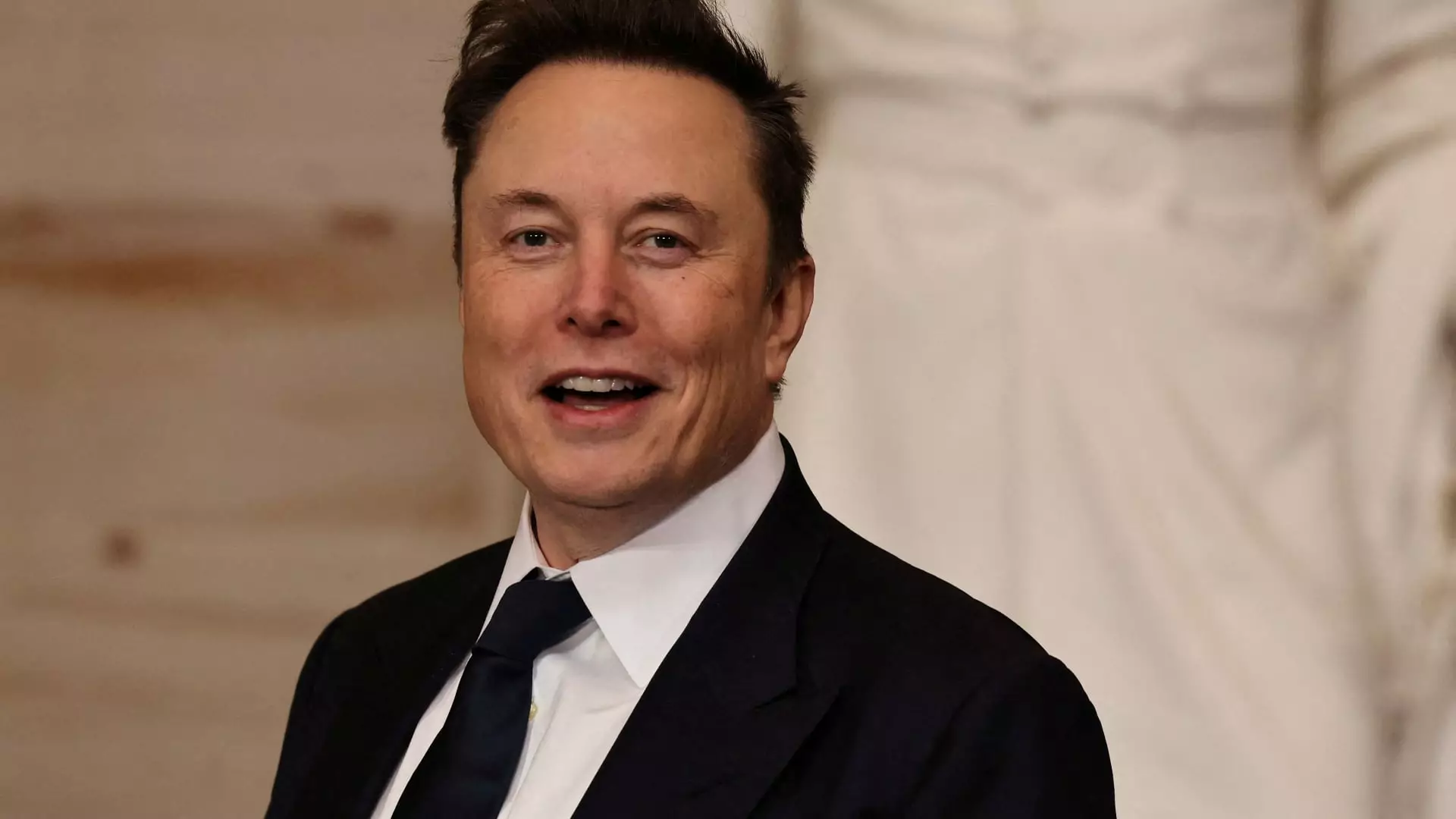What does it really signify when a corporate giant like Tesla is willing to offer its CEO a staggering, possibly trillion-dollar incentive? It signals a profound shift in expectations, where the traditional model of leadership accountability is overshadowed by a relentless pursuit of competitive advantage. Musk’s mammoth pay package, tied to Tesla’s valuation hitting an astronomical $8.5 trillion, reveals a troubling narrative: in the modern corporate landscape, loyalty seems conditional upon personal gain rather than mutual growth. Tesla’s insistence on such a colossal reward underscores a deeper issue—the commodification of visionary leadership, where the leader’s primary loyalty may, more often than not, pivot toward self-interest and private ventures rather than the corporation’s long-term health.
This compensation scheme, while portrayed as necessary to stave off Musk’s distractions from other interests, raises questions about the integrity of corporate governance. Shareholders, often undervalued in such arrangements, are asked to endorse a plan that could turn the CEO’s wealth into a financial behemoth beyond the scope of most institutions’ control. The financial engineering involved, with potential payouts edging into the trillions, emphasizes the growing disparity between executive rewards and the tangible benefits delivered to everyday investors or society at large. It’s a disturbing reflection of the current capitalist model, where influence and power are increasingly concentrated in the hands of a select few at the expense of broader economic equality and responsible leadership.
The Private Wealth Revolution: A Disruptive Shift in Power Dynamics
Musk’s transformation from a Tesla-centric billionaire into a tech mogul with sprawling holdings in SpaceX, xAI, Neuralink, and other ventures highlights a critical societal trend: the erosion of a singular corporate identity in favor of a fragmented, private enterprise empire. Today, the majority of Musk’s wealth is not tethered solely to Tesla but instead dispersed across high-valuation private companies, which are shrouded in secrecy and propelled by speculative valuations rather than consistent profitability. This restructuring of wealth not only destabilizes traditional notions of corporate accountability but also consolidates immense personal power that influences market dynamics far beyond the control of shareholders.
The impressive valuations of SpaceX and xAI aren’t accidental—they serve as symbols of private-sector innovation and ambition, but they also introduce new layers of risk and volatility. With Musk owning substantial stakes—over 50% in some entities—his personal fortunes become intertwined with the unpredictable trajectories of these private companies. Such a setup fosters an environment rife with conflicts of interest and moral hazards. The risk, then, is that corporate decisions become increasingly driven by Musk’s own visions and aspirations rather than the prudence of independent governance or the collective good of stakeholders. This could precipitate a pattern where monumental bonuses and private valuation surges continue to divert real value from mass investors and societal benefit.
Power, Influence, and the Future of Corporate Responsibility
In the broader social context, Musk’s multi-billion-dollar pursuits encapsulate a dual-edged phenomenon. On one hand, his innovative ventures push technological boundaries and inspire progress; on the other, the concentration of such wealth and influence signals a troubling trend toward a new aristocracy in the tech age. The fact that Musk’s private holdings now surpass his Tesla assets in value creates a de facto disconnect—a sort of corporate capitalism where public valuation and private interests clash in unpredictable ways.
From a political and social perspective, this scenario underscores the urgent need for a more responsible, accountable model of capitalism. While some argue that Musk’s success exemplifies freedom and innovation, center-leaning liberals must also critique the asymmetrical distribution of power and the lack of regulatory oversight that fuels such extraordinary disparities. Societies must question whether a system that allows such vast personal fortunes to develop outside transparent frameworks truly benefits the collective or merely entrenches privilege at the expense of equity and democratic accountability.
It’s essential to recognize that the real turmoil lies not just in Musk’s individual ambitions but in the systemic vulnerabilities they expose. As immense private valuations soar and executive rewards balloon to unsustainable levels, the pathway of innovation risks being obstructed by oligarchic tendencies. A balanced approach—one that champions responsible corporate governance, fair wealth distribution, and stringent regulation—is the safeguard against a future where influence is bought and sold in secret, and true progress becomes a playground for the ultra-wealthy.

